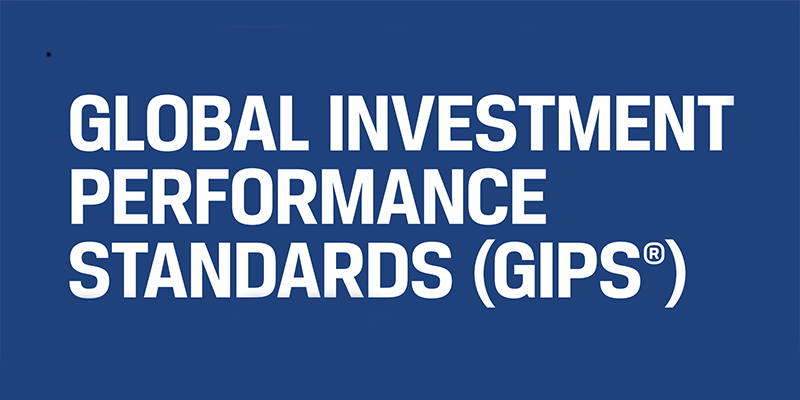GIPS Standards Verification Services, Part I: Case Facts
For more on ethics in investment management, the CFA Institute Research and Policy Center has launched an informational content hub to mark Global Ethics Day 2023.
The Board of Governors of CFA Institute recently approved changes to the CFA Institute Standards of Professional Conduct that will take effect on 1 January 2024. CFA Institute will present a webinar, “Changes to the CFA Institute Code of Ethics and Standards of Professional Conduct,” on Tuesday, 24 October, that will describe those changes in detail. The case below previews those changes and also touches on the Global Investment Performance Standards (GIPS®), the globally adopted standards for presenting investment performance in an ethical and transparent manner.
Today is the second day of the 27th Annual GIPS Standards Conference, which CFA Institute is holding in Chicago. If you missed the event but would like to access conference-related content, you can register for the digital event experience, which will be available on Monday, 30 October.
In recognition of Global Ethics Day on 18 October, we present the following ethics case study based on a recent SEC enforcement action.
Can you recognize which of the newly adopted CFA Institute Standards of Professional Conduct are at issue in the case?
Case
Leonard Satterwhite, CFA, is a long-time CFA charterholder who also earned the Certificate of Investment Performance Measurement (CIPM) from CFA Institute over a decade ago. He worked for many years as head of investment performance for King Collins Asset Management (KCAM), a medium-sized asset adviser that manages investments of retail investors, high-net-worth individuals, and a few small pension and endowment funds. KCAM has claimed compliance with the GIPS standards for years and has engaged Ronald Billingsley Partners (RBP), a large accounting and verification firm, to conduct an annual verification of KCAM. As head of investment performance for KCAM, Satterwhite oversaw the relationship with RBP but delegated the work needed to support the verification process to junior employees on his team.
When KCAM merges with a large global investment management firm, the company’s investment performance department is eliminated and Satterwhite and his team are let go. RBP hires the junior members of his team for its investment performance group. Satterwhite decides to form his own firm, Leonard Satterwhite and Company (LSC), taking advantage of his years of investment performance experience to offer GIPS standards consulting and verification services. Satterwhite solicits business by promoting his status as a CFA charterholder and holder of the CIPM certificate as well as his vast investment performance, compliance, and verification experience.
Several asset management firms, including VanZandt Investments, recognize the benefits of GIPS compliance and verification to help expand their client base and hire LSC to perform GIPS standards verifications. Gene Odom, VanZandt’s COO, who is responsible for selecting the verifier, chose LSC based on Satterwhite’s assurance that he can conduct the engagement efficiently given his familiarity with all investment types managed by VanZandt. LSC’s client agreement states LSC will conduct a “verification of all assets managed by the firm.” LSC charges clients by the hour for its verification work, and Satterwhite informs VanZandt that he estimates the work will take 150 hours.
During the course of the work, Satterwhite recommends that VanZandt purchase performance software from MCA Analytics, telling VanZandt that MCA’s platform will greatly ease the firm’s compliance with the GIPS standards and lessen the time and resources needed for future verifications. VanZandt agrees to purchase the software without knowing that in return for recommending MCA’s products to clients, MCA’s CEO commits to Satterwhite that MCA will contribute a percentage of the sales secured through Satterwhite’s recommendations to the environmental protection nonprofit run by Satterwhite’s wife.
Once Satterwhite begins, he quickly realizes that the work for VanZandt is much more complex than he anticipated. The firm has client assets in many more types of investments and account structures than Satterwhite had experience with at his former firm. Satterwhite is overwhelmed with the amount and complex technical aspects of the verification work and seeks to partner with a larger, more established verification firm to complete the VanZandt verification. He partners with RBP, the verifier of his old firm that hired his former KCAM colleagues. But to keep costs down, Satterwhite limits the scope of their work. The verification also takes much longer than Satterwhite expects. His final bill to VanZandt is for 400 hours of work.
After the verification, VanZandt submits its investment results in its newly created GIPS Reports as part of its response to numerous requests for proposals (RFPs), including an RFP from a state municipal workers pension plan seeking an outside investment manager for an interest overlay strategy. Each GIPS Report disclosed that the firm has been verified. The in-house CIO for the pension plan quickly notices a number of glaring deficiencies with VanZandt’s investment performance record. He sees that total firm assets incorrectly includes the notional exposure of the firm’s overlay exposure and that the firm fails to disclose how it calculates overlay exposure. The pension plan CIO recognizes that the GIPS Report does not meet the requirements of the GIPS standards as VanZandt claims. The CIO points out the deficiencies in the letter informing VanZandt that it will not be considered for the plan’s asset management business.
Already frustrated by the unexpectedly high cost of the verification, Odom calls Satterwhite to demand an explanation for his apparently faulty work. Satterwhite states that verification only entails a sampling of firm information and the problems at issue were not part of the sample performance information that LSC checked in conducting the verification. Satterwhite claims to be surprised that a sophisticated investment professional such as Odom did not understand the scope of a GIPS standards verification and its reliance on sampling. Infuriated by this, Odom terminates VanZandt’s contract with LSC.
Which of the new CFA Institute Standards of Professional Conduct did Satterwhite violate and why?
To find out if you answered correctly, check out “GIPS Standards Verification Services, Part II: Case Analysis.”
If you liked this post, don’t forget to subscribe to Market Integrity Insights.
All posts are the opinion of the author. As such, they should not be construed as investment advice, nor do the opinions expressed necessarily reflect the views of CFA Institute.
Professional Learning for CFA Institute Members
CFA Institute members are empowered to self-determine and self-report professional learning (PL) credits earned, including content on Market Integrity Insights. Members can record credits easily using their online PL tracker.




